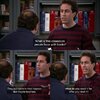How to ensure students get the teaching and support they need to read well - ABC Education
What do state and territory governments need to do to ensure every child is taught how to read well, regardless of where they go to school? Amy Haywood from the Grattan Institute explains.
Popular teaching style 'contrary to science' costing Australia $40 billion, report finds
One-third of Australian students are failing to learn to read proficiently, at an estimated cost to the economy of $40 billion, according to a new study.
One third of students are below minimum standard for reading.
For decades, many teachers have been teaching in the non scientific whole of language method where students are assumed to read by associated pictures and not teaching the more scientificality backed method of phonics and explicit instruction.
Primary school teachers are a product of their training - the Universities.
So why aren't Universities directly blamed for responsibility for their contribution to this mess?
Last edited:






